It is hard to shake the stigmas and myths surrounding the word anarchist. We are the only political and social subculture deemed to be “self described” as if we are so disorganized that it is deemed to be a miracle that we could describe ourselves in the first place. We are perpetually filed away as unimaginative or self-absorbed or dismissive of others’ ideas if they are not “chaotic” enough. That’s crap.
For the record, most of the anarchists I know are brilliant and strong organizers. Their strategies for building a community that leaves the individual intact but creates a greater whole are unparalleled. They give without leaving their name, and that is perhaps the biggest problem. When anarchists shun the praise for their ideas and actions, the world is left to wonder about what it is that we do and why our ideology is so much more relevant than any of the self serving garbage that seems to always be on display.
For the first Pittsboro Pecha Kucha night – a series of presentations featuring twenty slides with twenty seconds to speak during each slide – I decided to discuss what to me is an idea that makes perfect sense. Franchise anarchism, the spreading of non-hierarchical organization, is something that a few others have spoken about in passing. I have found sparse references to it in the ether, and the general idea is the same – spread the idea without taking ownership globally.
Maybe I should just let the presentation speak for itself…
Slide 1: “Franchise Anarchism” is a pretty simple idea. Communities, like weeds, can and will organize themselves more efficiently and more successfully outside the help of government, big non-profit and multinationals. An idea can spread and be successful in any part of the world without rules handed down from an overarching hierarchy.
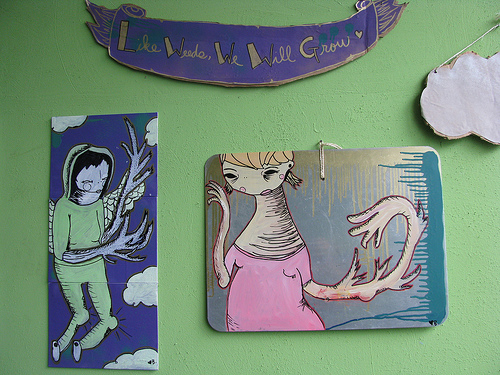
Slide 2: Our leaders are lost out there; they don’t have the time, capacity or desire to understand the needs of every citizen they claim to represent, those needs can easily be understood by a neighbor or another community member. While politicians write the laws that run our lives, coming to visit us only when it is politically necessary,
Slide 3: to cut a ribbon or have a fundraising dinner, we are here searching for ways to get out of the loneliness and vapidity of the television, to cut through the lies and build a real community that responds directly to our needs and we to its needs.
Slide 4: Our differences are on display daily, from what we drive to what we eat. but in order for the community to function we can’t be labeled as bicycle hippies or SUV driving jerks. We have to realize that we have common enemies as well as common friends.
Slide 5: Miami, 2003, the site of the latest Free Trade Area of the Americas negotiating talks, the FTAA being the state’s version of free trade, which is never free. Miami, 2003, up to that point the single largest militarization of the domestic police force in United States history.
Slide 6: The power of the state is not benign, looking out for the little guy, the middle class, the “hard workers”. The power of the state is manifest concretely in the military weapons it provides its police, the silence encountered when a police officer was asked for their badge number or to “please, lower your weapon – I am simply searching for my right to assemble.”
Slide 7: The realization that I had in Miami – after seeing the bloodied faces of journalists, the welts forming on the backs of those trying to escape the concussion grenades, was that our place in organizing as anarchists had to occur in other venues besides the street. We had to engage our community and do it in a way that released all the political ideology to the wind. The Really Really Free Market was born in Miami in 2003.
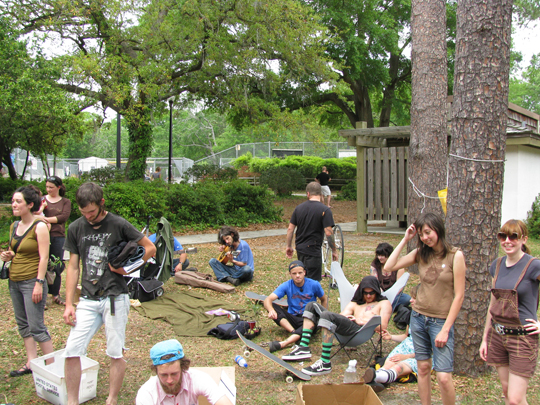
Slide 8: The RRFM is the newest iteration of franchise anarchism. The idea is simple – bring what you don’t need and take what you do. No money, no advertising, no bartering, no trading. No swap meets, no charity events, no ticket booths, no entrance fee. Put simply, everything is free.
Slide 9: The RRFM builds community by directly engaging its individual pieces through the word that everyone loves – free. There is nothing too small to offer, nothing turned away. Music, haircuts, juggling lessons, recipes, plants, seeds, bike repair, puppet shows…
Slide 10: The idea of the RRFM is built on several concepts that had come and gone in the activist underground for decades. The Diggers in San Franscico pioneered the idea, forming a community whose purpose was to give away the waste and the excess of the system. Then came free stores, guerrilla gardening, Critical Mass bicycle rides…
Slide 11: It is a way to reach children, show them the value of interacting with all types of people, teach them a new skill or send them home with something they may not have had access to otherwise whether it is an idea or a piece of clothing.
Slide 12: Free markets are great ways to distribute clothing, shoes, infant products to underserved or homeless individuals, thrifty parents, not-so-thrifty parents, students, elderly on fixed incomes… Bringing a large cross section of socio-economic classes together serves to build the framework in which the community in the free market space can see through differences and focus on common goals.
Slide 13: Another aspect of free markets in the idea of self-sufficiency especially in the realm of food security. Seed saving skill shares and free plants create a situation where a small component of an individuals food needs may be offset by their own work.
Slide 14: RRFMs since 2003 have spread to dozens of cities around the country with some of the most popular and longest running in North Carolina. Greenville, Raleigh, Carrboro, Greensboro, Wilmington, Boone and Asheville have thriving markets and community continues to build around them.
Slide 15: Offshoots of free markets often occur in the form of food banks, skill share workshops, bike repair programs and the like which occur outside of the free market hours.
Slide 16: A large component of the RRFM is Food Not Bombs, perhaps one of the best known and most popular examples of franchise anarchism in the world. Starting from one location in the 1980s, Food Not Bombs now has hundreds if not thousands of events worldwide.
Slide 17: The idea is very simple – cook free food recovered from the waste stream and serve it to the hungry. The organizational concept is easy to fit wherever there is food waste and hungry people., which, by the way, is everywhere.
Slide 18: The Really Really Free Market concept, in my mind, is a way to use what has worked from the old models and appropriate those things to build a solid franchise. The basis for are the tenets of anarchism: community based, non-hierarchical, inclusive, effective, non-governmental, do-it-yourself, consensus-based, and sustainable.
Slide 19: All of that is great, but resistance to building the kind of community where nothing is for sale can be a bit strong. Food Not Bombs is frequently shut down using laws that prohibit the sale of food without a permit. Police and politicians are unfamiliar with the idea of “free” anything and thus are a huge obstacle in the creation free flowing, non-permitted community activities.
Slide 20: We are replacing a culture where neighbors are feared, We are replacing a culture where industry treats communities like dumps, We are replacing a culture where children play in the diseased clay of bad decisions, We are replacing a culture that says representative democracy is good enough, We are replacing a culture…
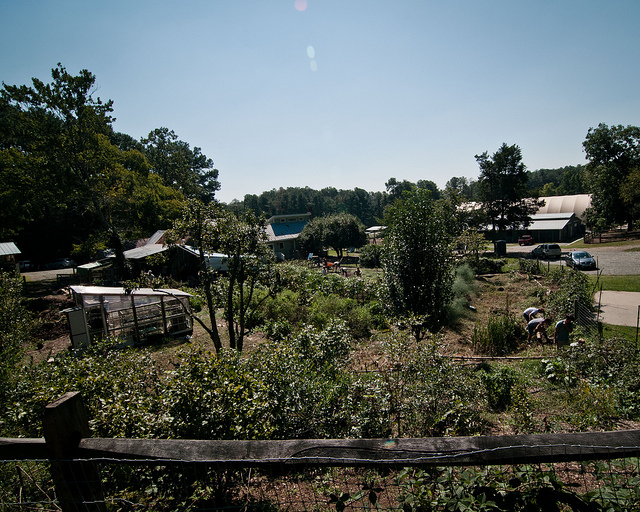

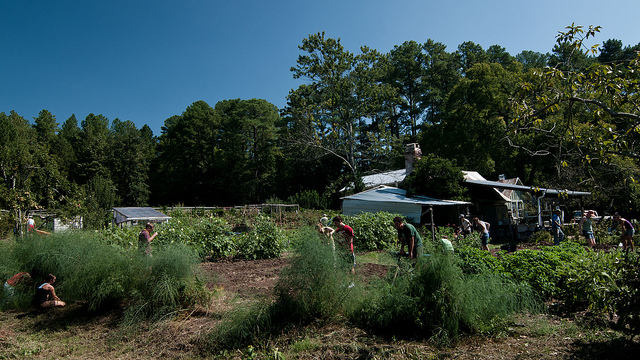
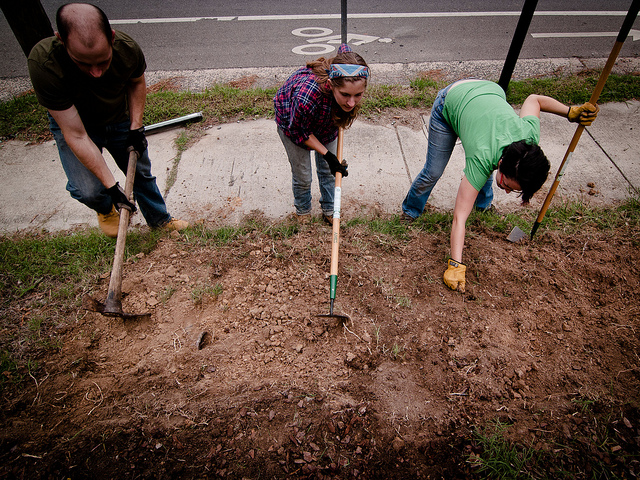
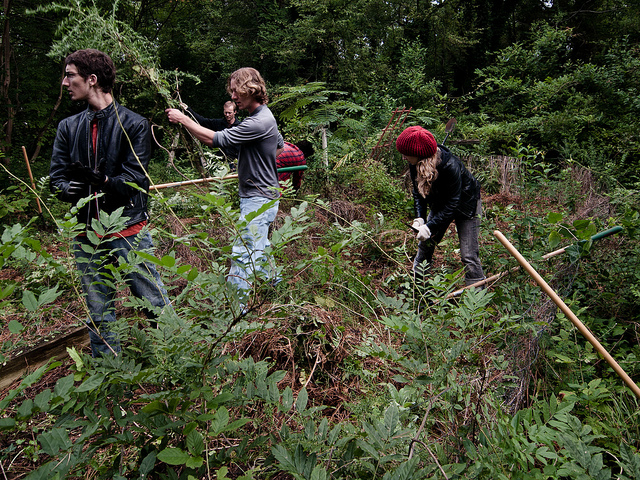
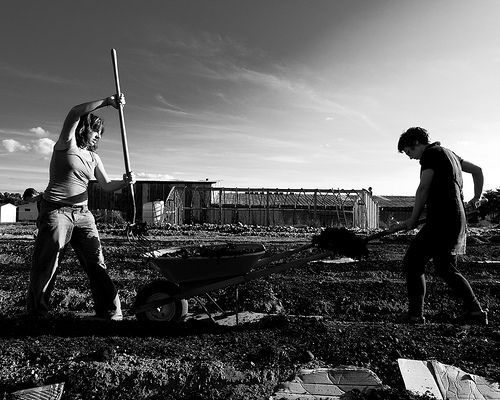

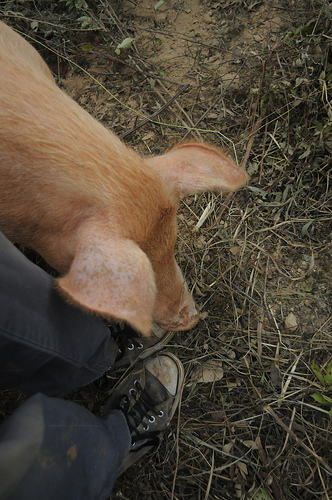

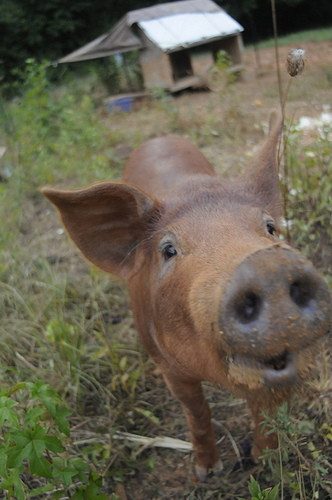
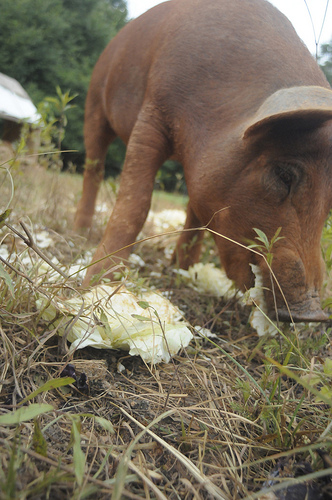
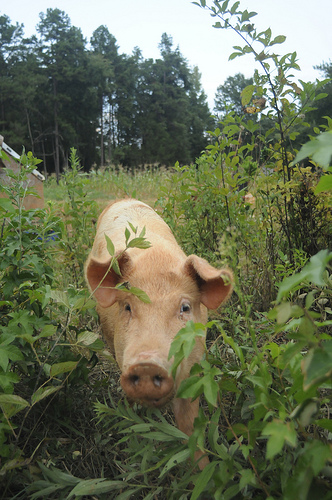
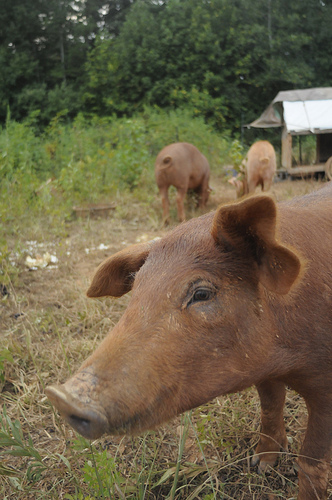
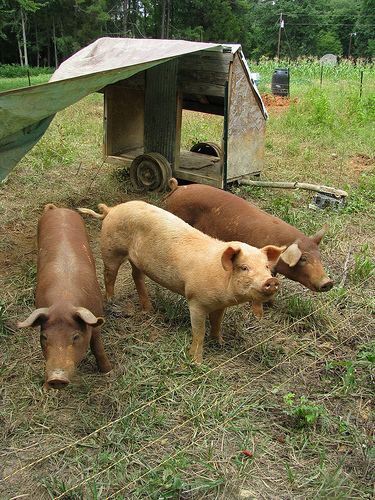
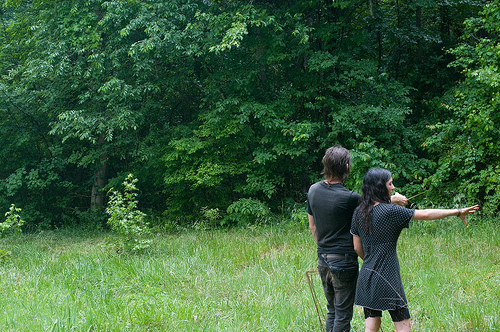

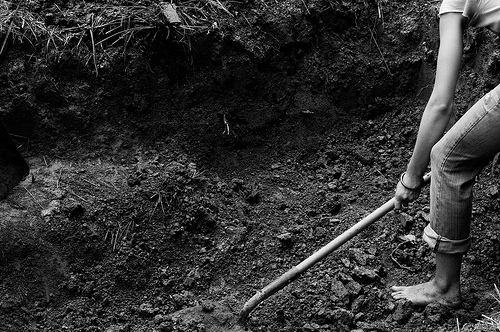
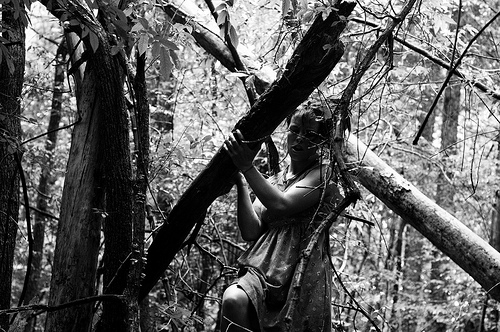


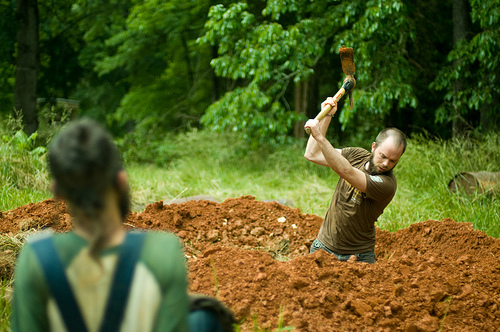
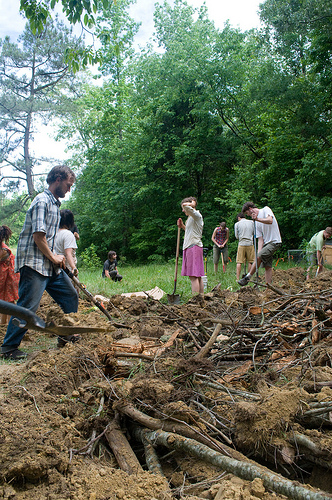
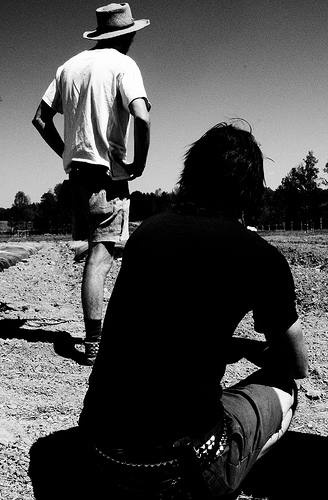

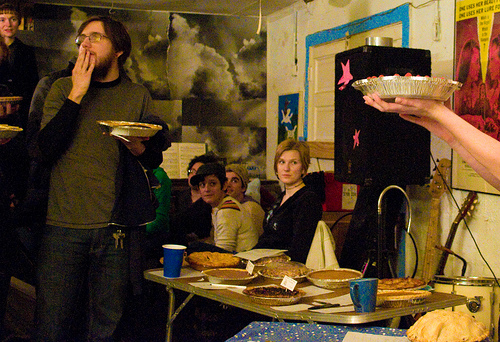

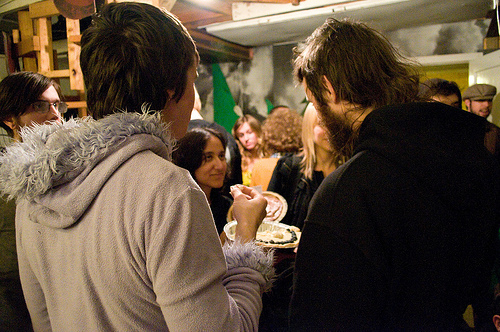
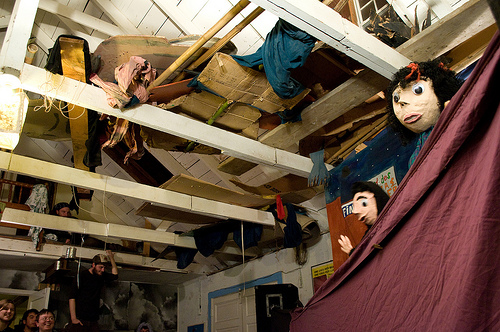
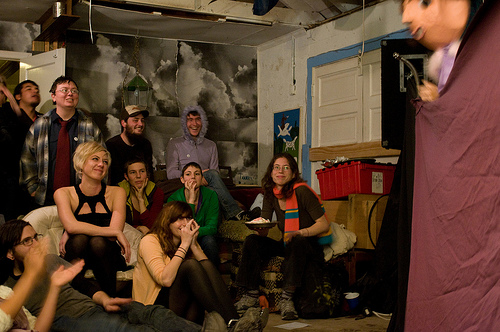
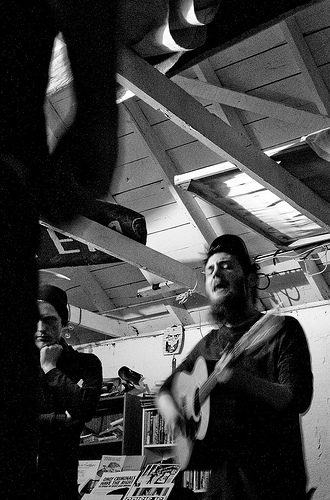
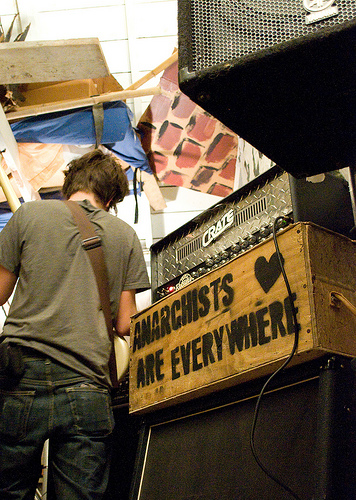
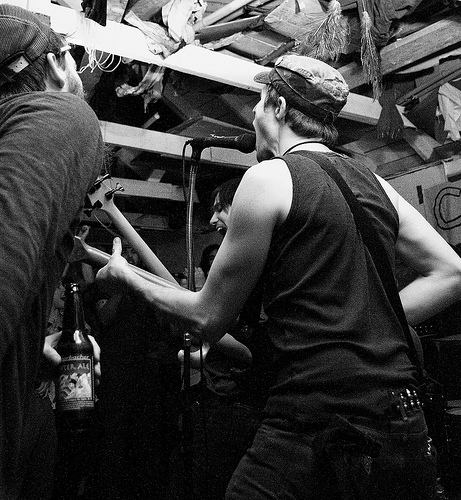
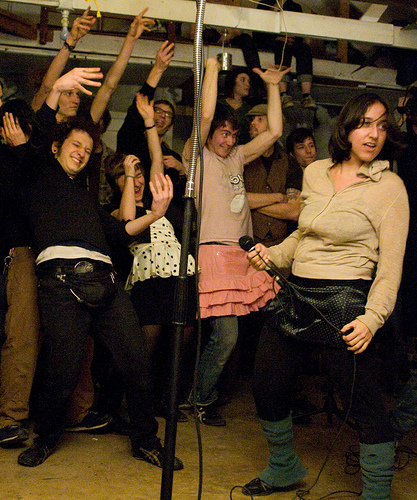
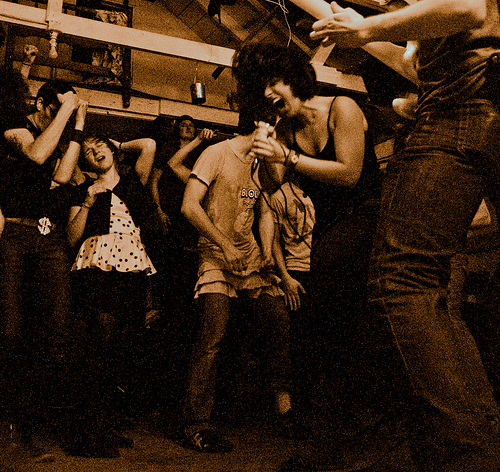

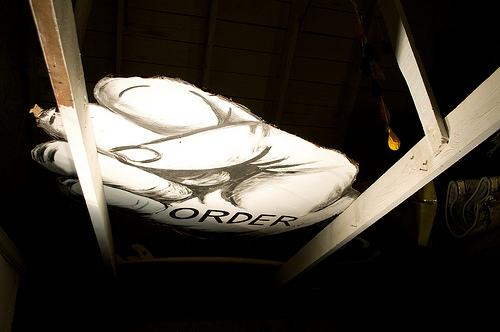

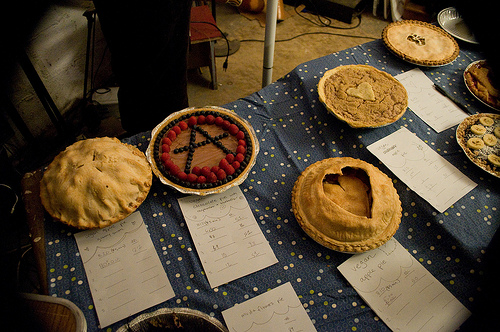
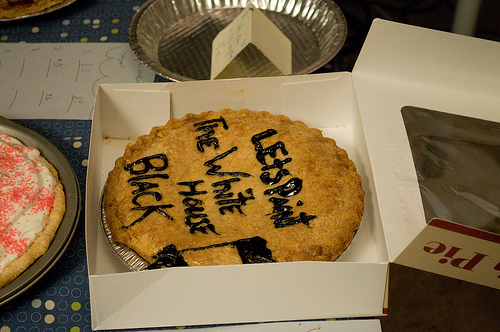
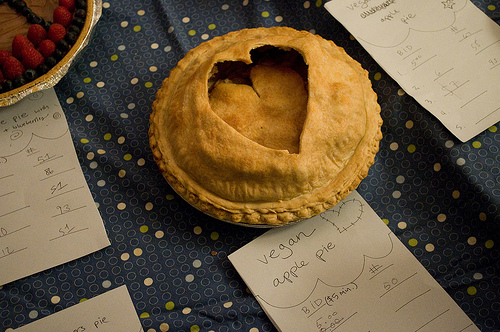
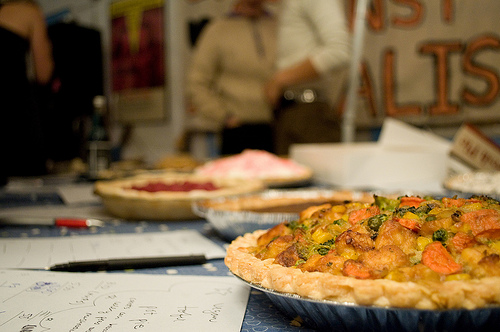
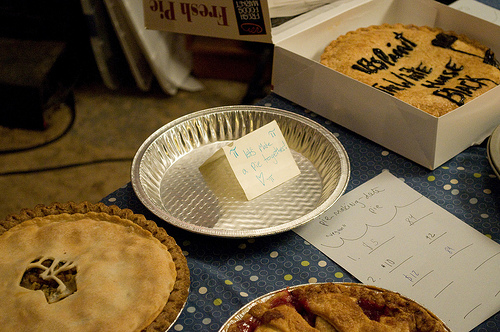
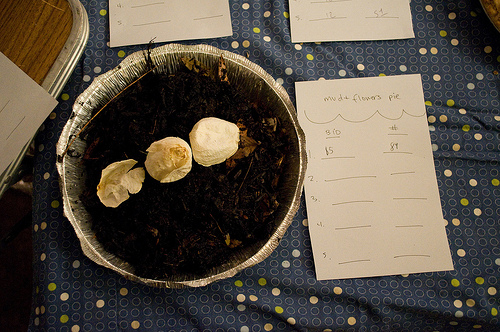
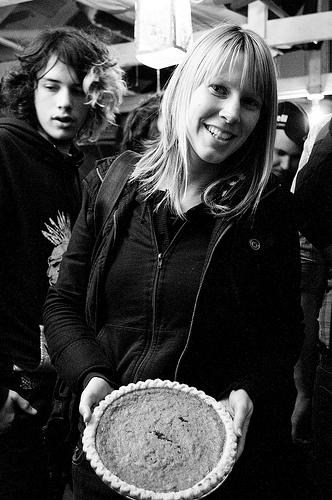
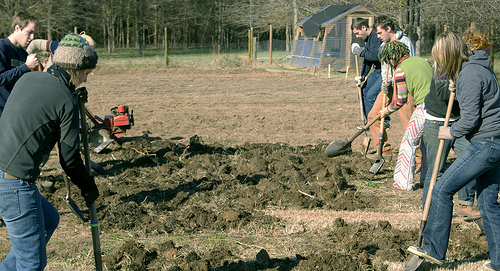

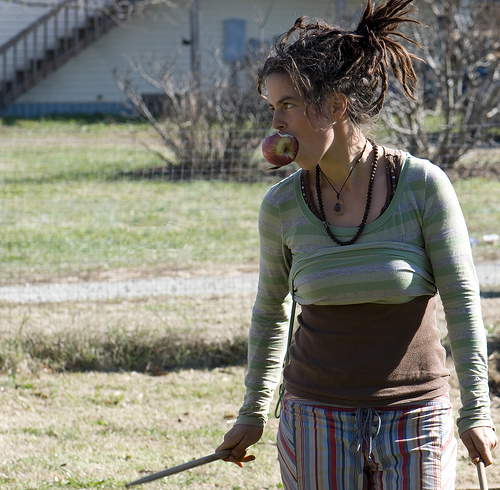
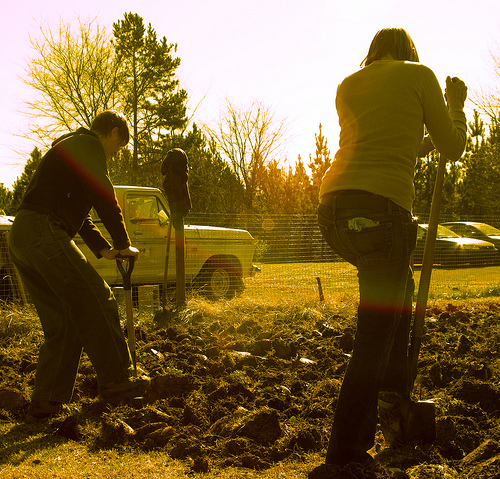
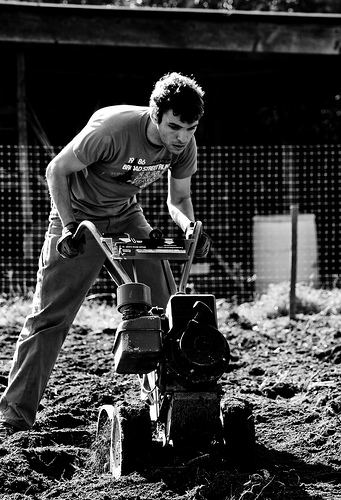
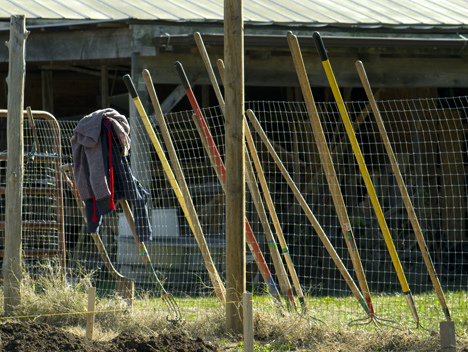
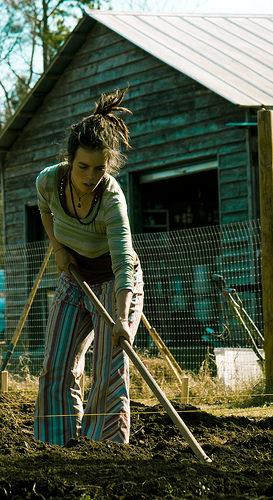
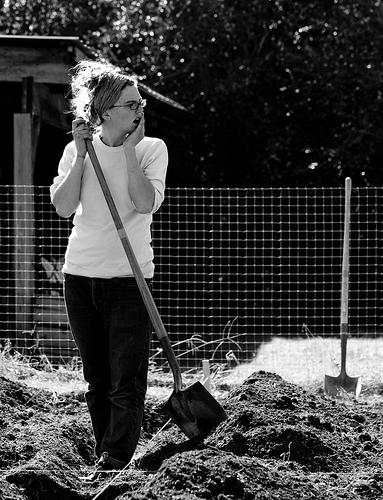
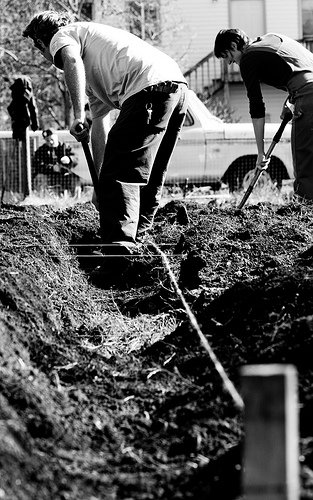
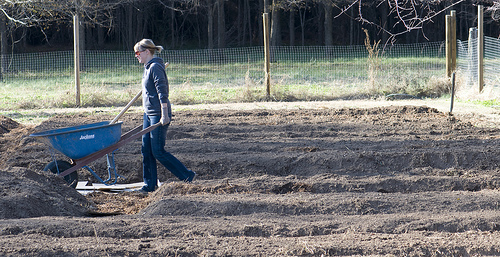
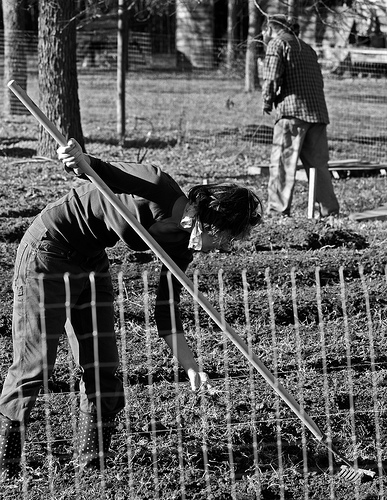
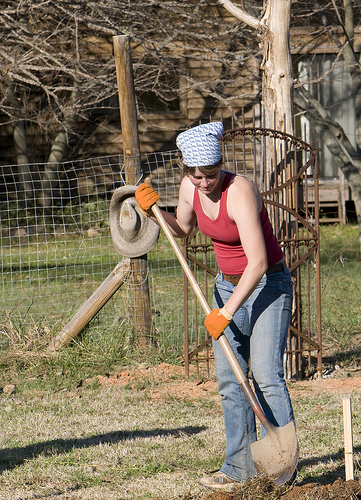
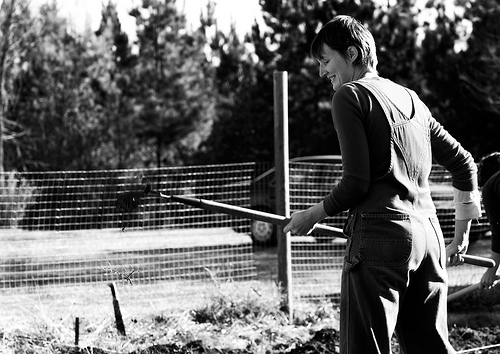
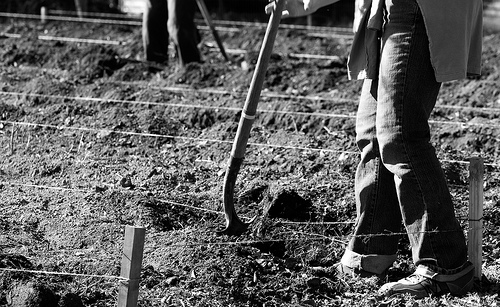
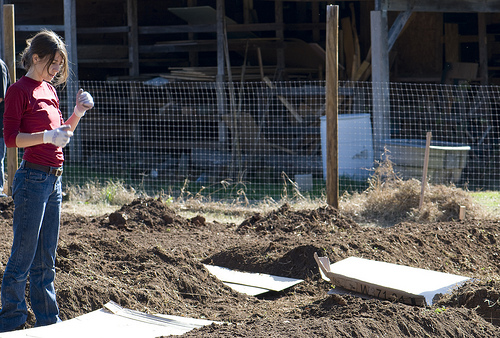
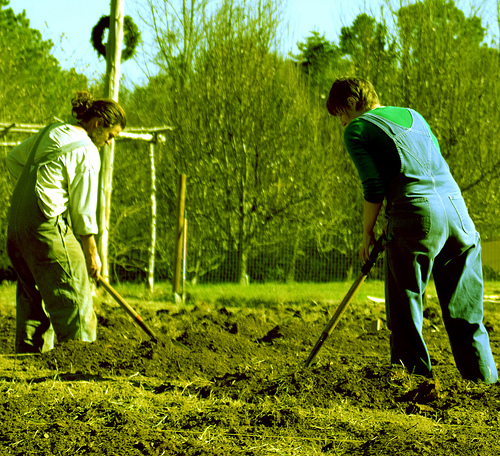
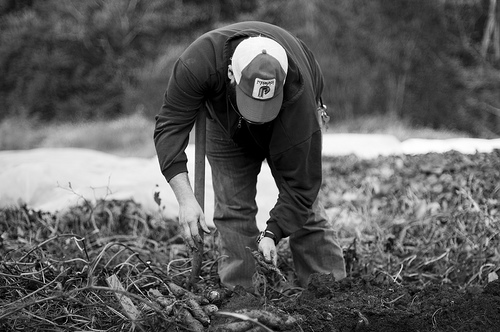

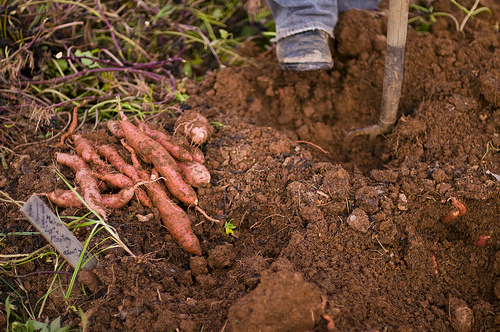
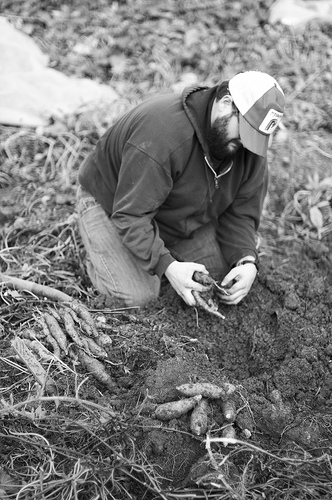
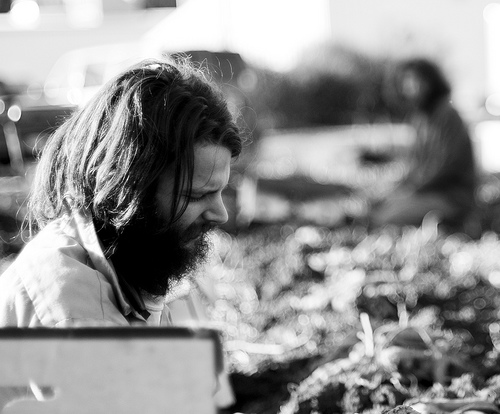
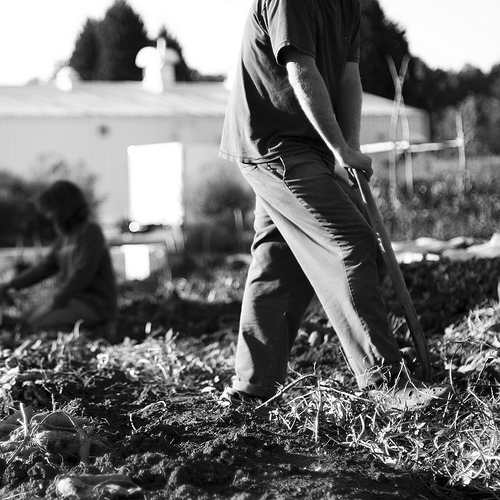
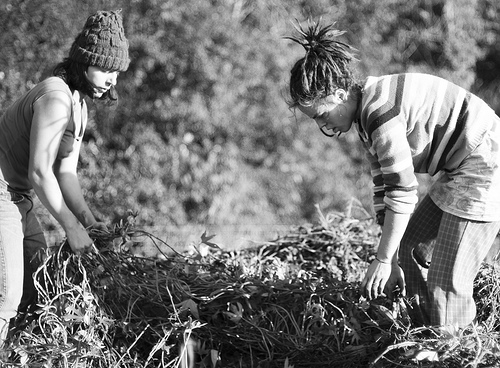
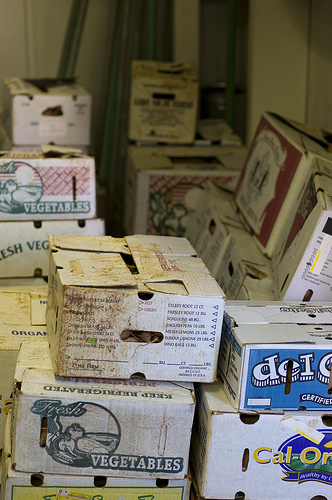
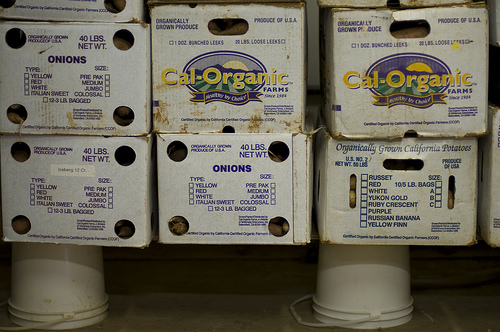



September 24, 2011 at 10:23 am
Glad the mulching is back. As you know, I believe mulching is part of the ethos of Crop Mob
Here’s a link to the stuff on leftism I mentioned last night: http://less-art-more-meat.blogspot.com/2011/09/leftism-lenin-engels.html